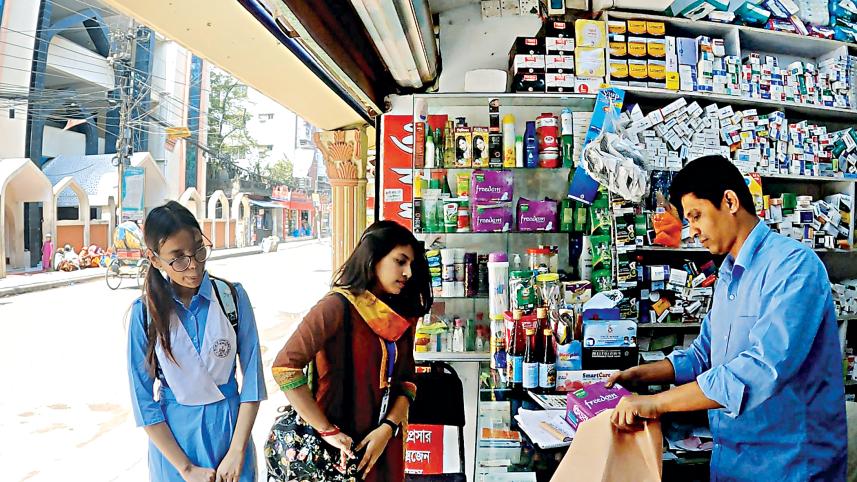Breaking the stigma around menstruation and sanitary napkins

In 2018, one day after my morning classes, I realised that my time of the month had arrived. Unfortunately, I was unprepared and the only option was to go to the pharmacy right next to the university. I hurriedly walked in and asked for a packet of sanitary napkins and thus, began a long process of wrapping.
Not only was the man across the counter using a brown paper bag to conceal what was inside, but he went the extra mile to wrap it with two sheets of newspaper and to tape it up for me. There I was standing for almost 15 minutes and hoping that I would not stain my clothes, while the man made it more and more difficult for me to cater to my menstruation, a natural, biological process for the female body.
Be it because of my impatience or my gut instinct, I tore the newspaper off in front of the man and took out the packet of sanitary napkins from the paper bag. The man looked at me displeased and I said to him, "This was unnecessary." However, I did walk out of the pharmacy with the packet inside my backpack, again concealed.
Menstruation has long been a stigmatised topic in our society. Addressing this stigma, Freedom's #UnwrapYourFreedom campaign demonstrates the reality that women face in purchasing sanitary napkins. Rather than being treated as a basic necessity and like any other commodity, it is concealed from public view. We, as young girls, are taught to never speak of it in front of other people, especially men. We are taught to never express the discomfort and difficulty that comes with menstruation. We are taught that concealment and menstruation go hand in hand.
The logic behind this concealment is that sanitary napkins are a symbol of shame and menstruation is something extremely personal and demands to be hidden. The campaign video shows the viewpoints of multiple women, the majority of who are either hesitant to talk about it or blatantly refuse to talk about this natural process openly. This stigmatisation and taboo surrounding menstruating and by extension, sanitary napkins is a social rejection of womanhood.
As a society, it is important to break past this illusion of shame associated with menstruation and bring this topic to light. The campaign advocates for the normalisation of women's bodies and the experiences which are unique to women. It illustrates that menstruation is as natural as breathing and the commodities, which are essential during this time need to be easily accessible without any fear of social ridicule.
As women strive for their rightful place in society alongside men, it is high time that we start disagreeing with the concealment of sanitary napkins and treat it like any other daily essential.
By Puja Sarkar
Photo: Star Multimedia
 For all latest news, follow The Daily Star's Google News channel.
For all latest news, follow The Daily Star's Google News channel.